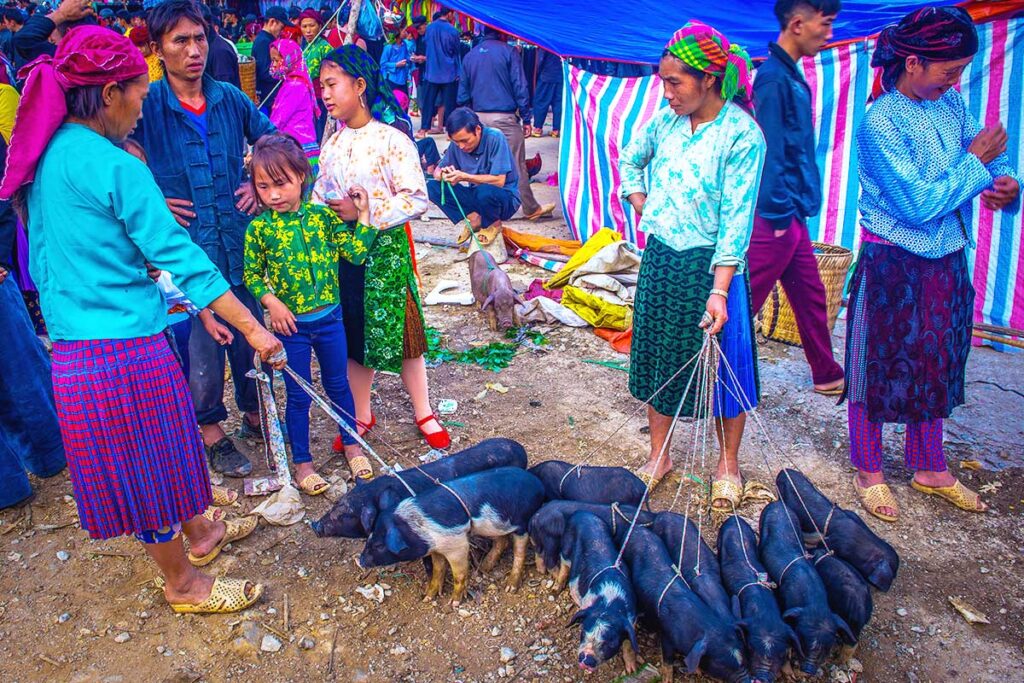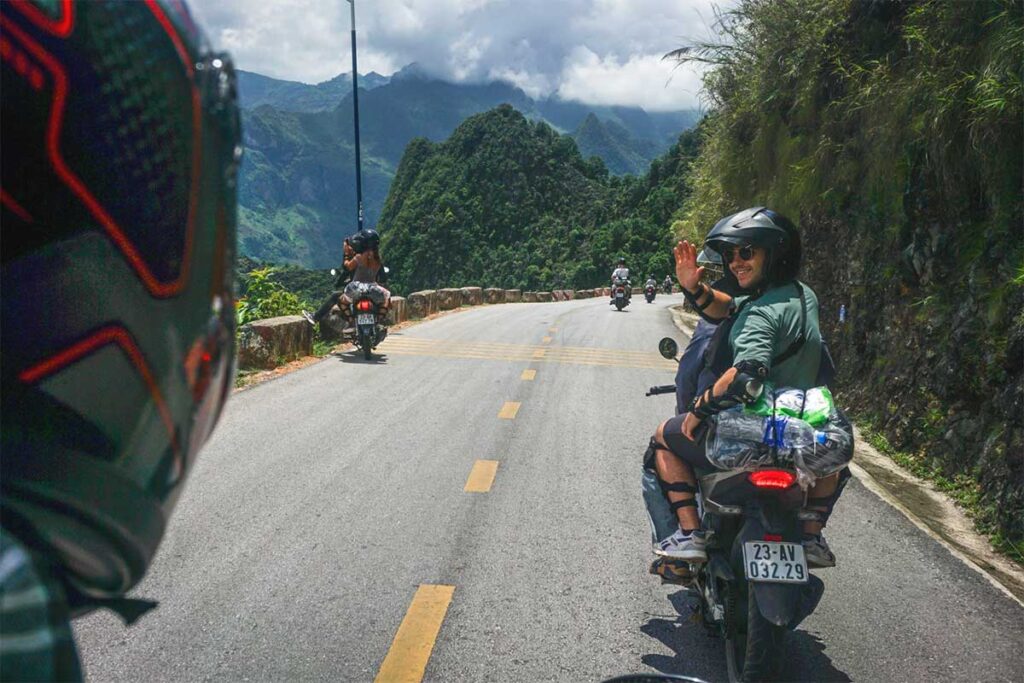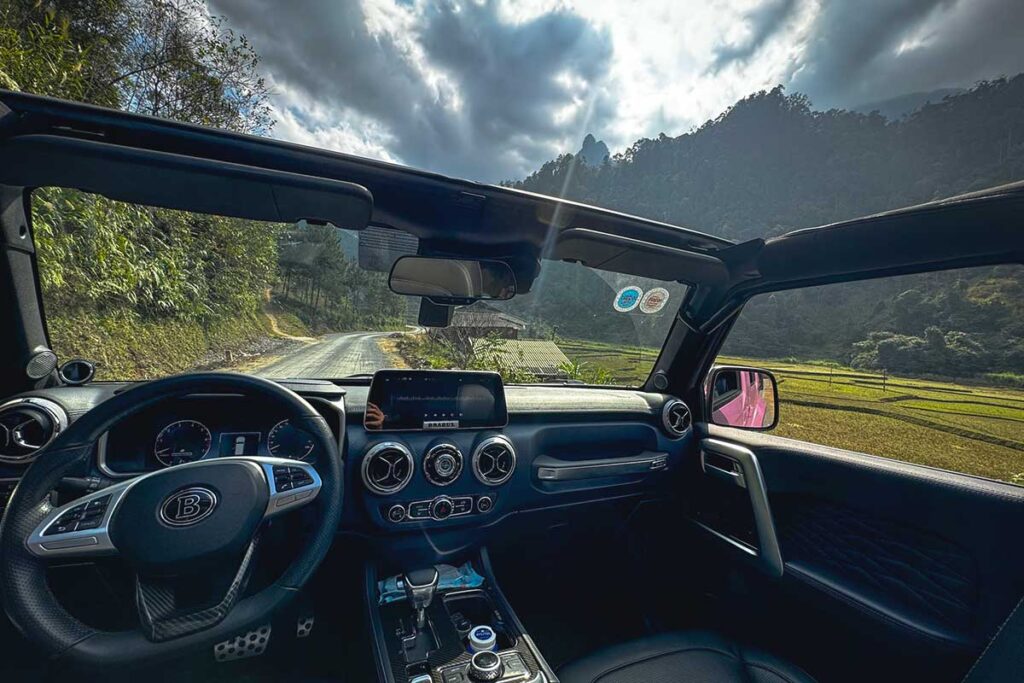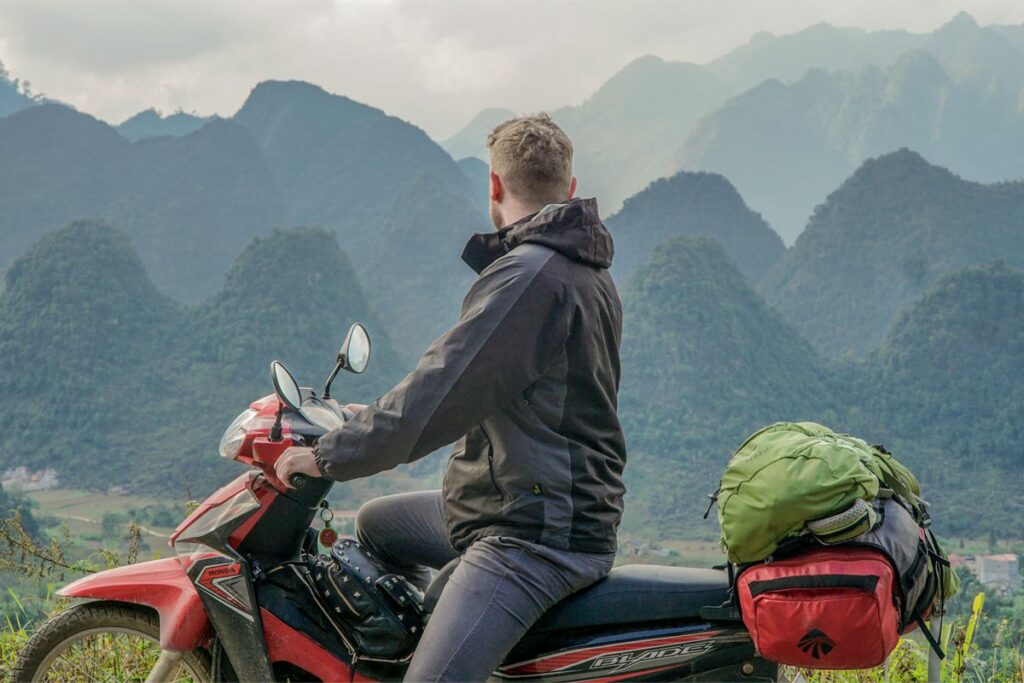What is Dong Van Market?
Dong Van Market is a lively weekly market that takes place every Sunday morning in the center of Dong Van town. It’s one of the most important cultural gatherings in the region, attracting people from across the Dong Van Karst Plateau Geopark.
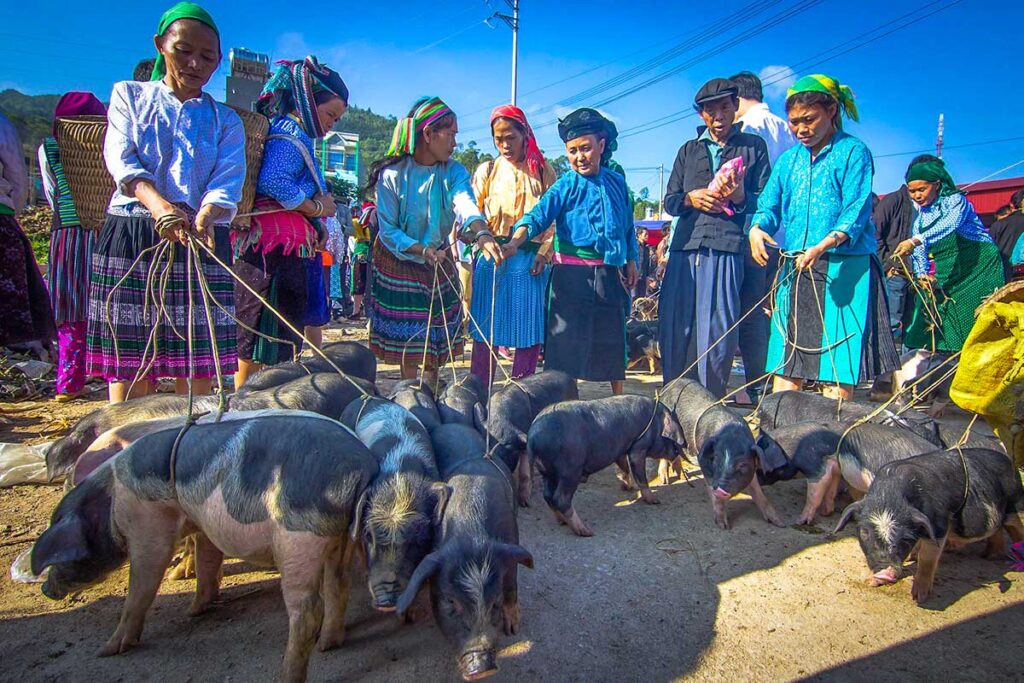
Ethnic groups such as the Hmong, Tay, Lo Lo, Giay, and Dao come dressed in traditional clothing to trade goods, catch up with friends, and take part in community life. It’s not a tourist show — this is a real working market where tradition, commerce, and social life all come together.
When and where is the Dong Van Market held?
When
Dong Van Market takes place every Sunday morning in the center of Dong Van town. It officially starts around 5:00 am and runs until about 12:00 pm, though the busiest and most vibrant hours are between 6:00 and 10:00 am. After 10, many sellers start packing up, and the energy begins to fade.
Where
The market takes place in Dong Van town, in Ha Giang Province, northern Vietnam. It’s set right in the town center, close to the Old Quarter. You can’t miss it — just follow the stream of locals in traditional clothing heading to and from the market early in the morning.
Pro tip: Stay overnight in Dong Van on Saturday, so you can walk to the market early and catch the full atmosphere before the crowds thin out.
How to get there
Dong Van Market is best visited as part of the Ha Giang Loop, which starts in Ha Giang City. First, you travel from Hanoi to Ha Giang, then begin the loop northward. The route from Ha Giang to Dong Van takes almost a full day and includes some of the most scenic parts of the loop — so getting there is already part of the experience.
The key isn’t just how to get there, but when. To visit the market at the right time, it’s best to start the loop either on a Saturday or Friday, so you reach Dong Van by Sunday morning. You can either ride a motorbike or join a car tour — both are common and follow the same route.
For a full breakdown on how to get from Hanoi to Ha Giang, and how to plan your loop timing, read our Ha Giang Loop guide.
Need help planning your route or transport? Fill in the form below and we’ll help you organize it.
What to expect at Dong Van Market
Dong Van Market isn’t just a place to buy and sell — it’s a social and cultural event that brings together people from across the surrounding mountains. Every Sunday, locals from different ethnic groups arrive early in the morning, dressed in traditional clothing, ready to trade, meet friends, and enjoy a day out. The market is busy, colorful, and full of character — not polished for tourists, but full of life and real local energy.
1. Traditional clothing and culture
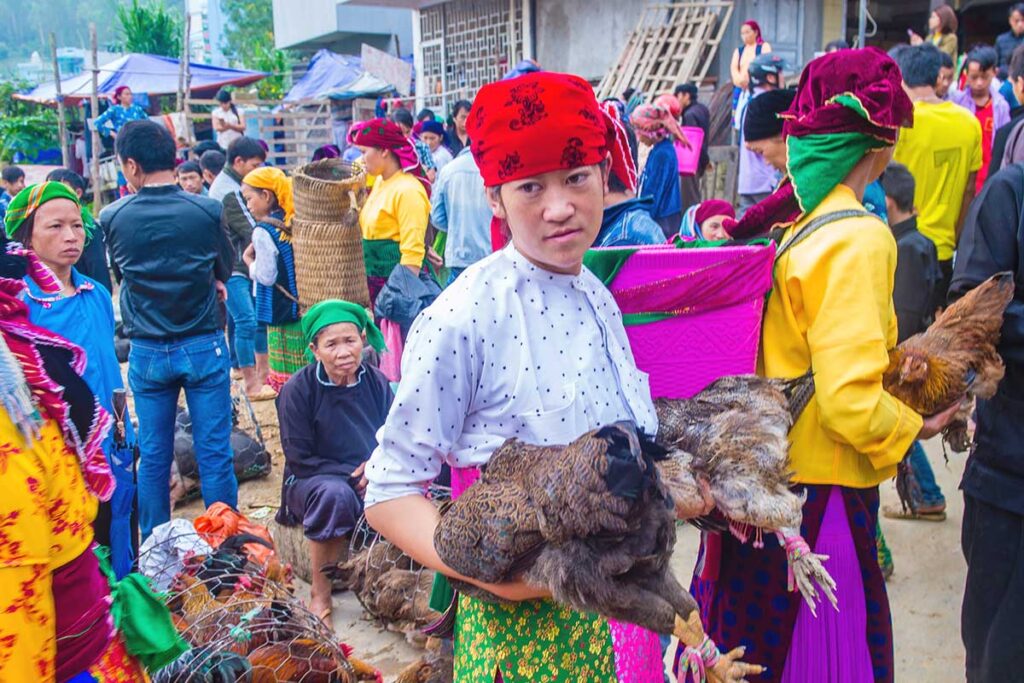
One of the first things you’ll notice is the vibrant clothing worn by ethnic minority groups such as the Hmong, Lo Lo, Tay, and Dao. Women wear brightly embroidered skirts, headscarves, and beaded accessories that reflect their group’s identity. Men also dress in simple but distinct styles, often with traditional jackets and hats.
Each group has its own patterns, colors, and embroidery techniques, making the market feel like a living showcase of local culture. You’ll also see many of these garments for sale at the stalls, often handmade by the sellers themselves.
2. Market atmosphere
The market is loud, lively, and completely unfiltered. People haggle, laugh, shout across the crowd, and gather around food stalls or piles of produce. It’s a bit chaotic, but that’s what makes it so engaging. There’s no staged performance or “cultural show” — just real, everyday life happening all around you.
For photographers and culture lovers, it’s a goldmine. But even if you’re not shopping or taking pictures, just walking through the crowd gives you a feel for how important the market is to local life in Ha Giang.
3. Community life
Beyond the trade, the market is a place to socialize and connect. Locals sit together for breakfast, chat over tea, and catch up with friends from nearby villages. In quieter corners, you might see people getting haircuts in the open air, or children gathered around small carnival-style games.
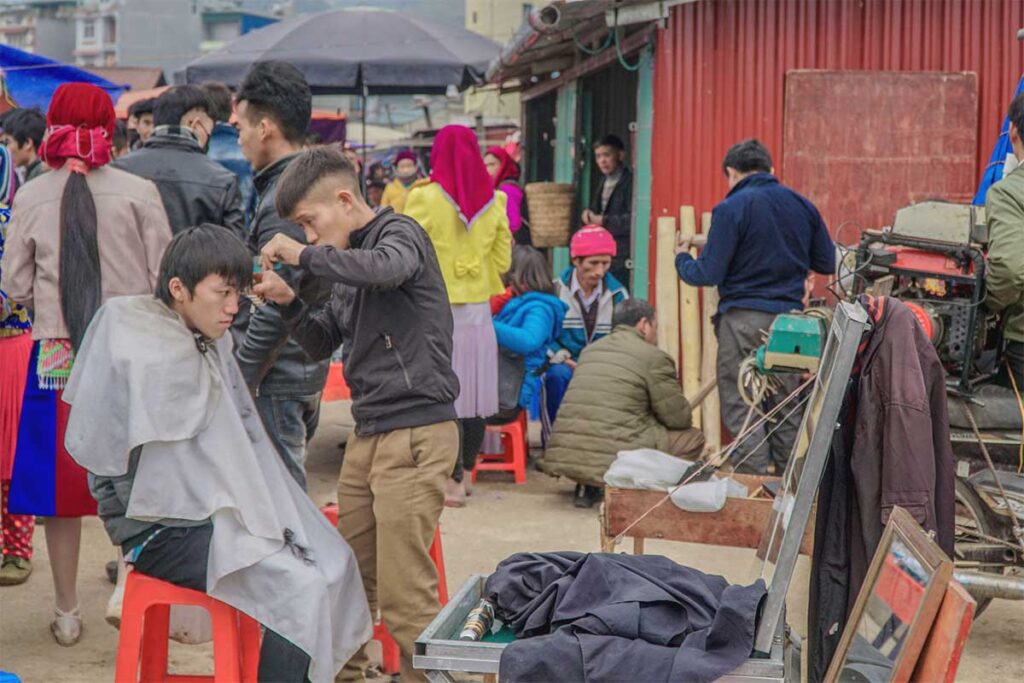
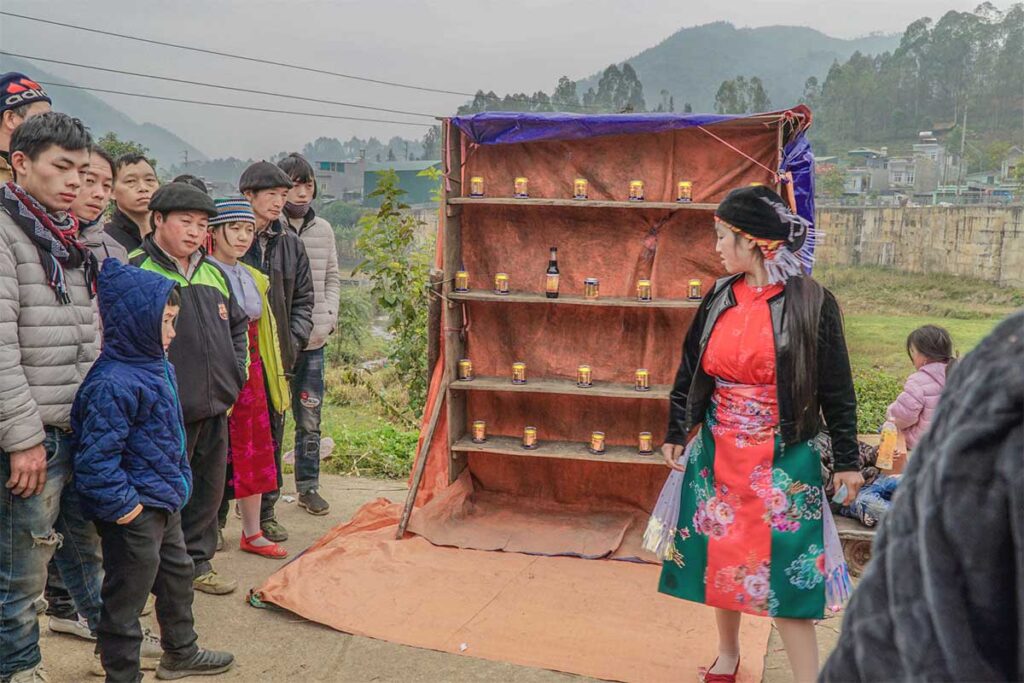
It’s these little details — not the things being sold — that make Dong Van Market special. Whether you’re walking through with a camera or just sitting on a low stool watching the crowd, you’ll feel part of something truly local.
What you’ll find at the market
Dong Van Market offers more than just cultural atmosphere — it’s also a working market where locals stock up on essentials, enjoy a hot meal, and trade everything from livestock to phone chargers. It’s not a tourist market, so don’t expect souvenirs or polished displays. But if you’re curious about what people in the highlands actually buy, sell, and eat, this market gives you a front-row seat.
1. Fresh produce and street food
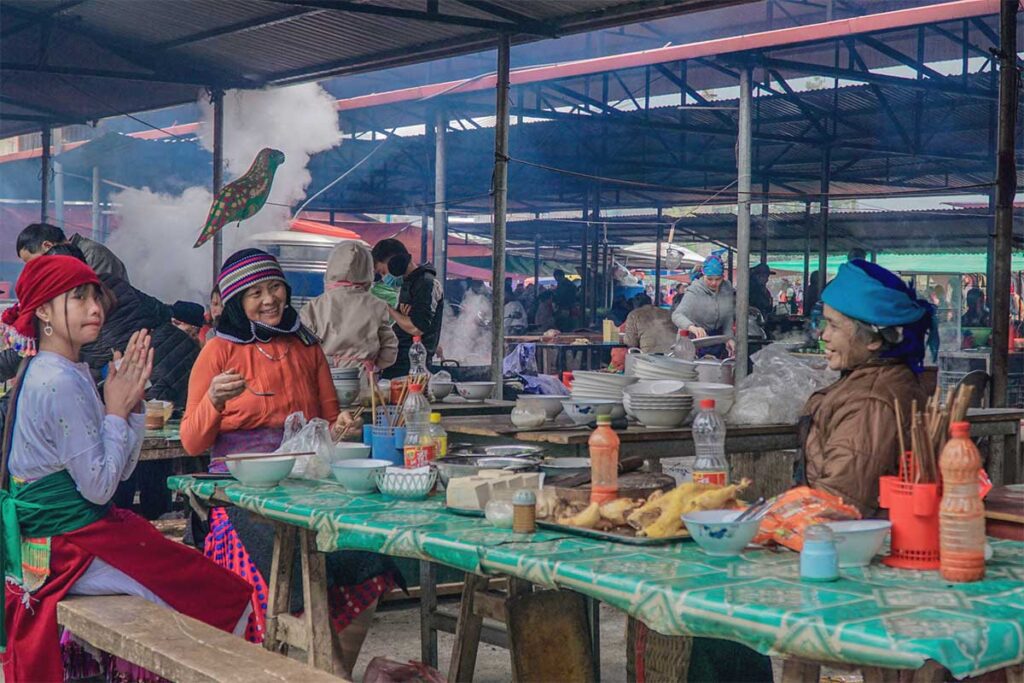
One section of the market is filled with local fruits, vegetables, herbs, and spices, often brought in from surrounding villages that morning. It’s where locals do their weekly grocery run.
In the middle of it all, you’ll find food stalls serving steaming bowls of noodle soup, grilled meats, sticky rice, and strong tea or corn wine. It’s a great spot for a simple local breakfast — and to sit among groups of friends catching up over a meal.
2. Traditional clothing and textiles
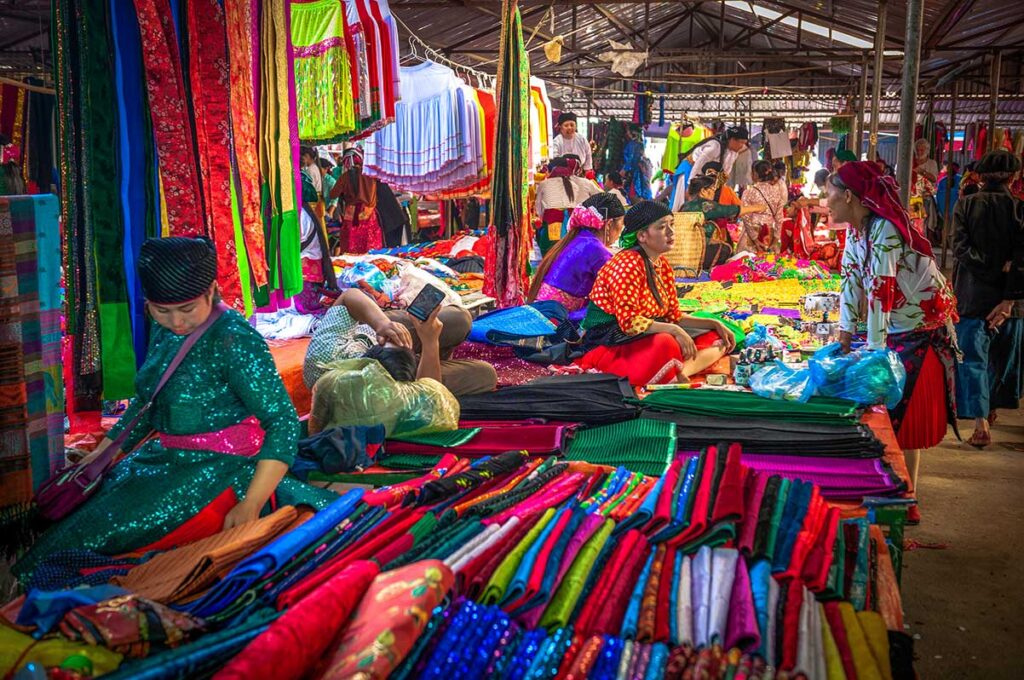
Many of the ethnic garments you see worn around the market are also sold here. Stalls display embroidered skirts, handmade belts, scarves, headwear, and fabric — often made by the sellers themselves.
Some shops offer modern clothes too, but the handmade items stand out. While it’s not the place for high-end souvenirs, the textiles are real and often used in daily life.
3. Local specialties
There are a few foods and drinks that are closely tied to Ha Giang’s ethnic communities — and you’ll often find them at the market:
- Thang Co: a traditional Hmong soup made with horse meat and organs. Strong flavor, definitely for the adventurous.
- Buckwheat cake (bánh tam giác mạch): made from the local buckwheat plant, steamed and slightly nutty.
- Corn wine (rượu ngô): homemade and strong, usually poured into reused water bottles and sold by the liter.
You’ll also find dried herbs, teas, and sometimes forest products used in traditional medicine or cooking.
4. Livestock section
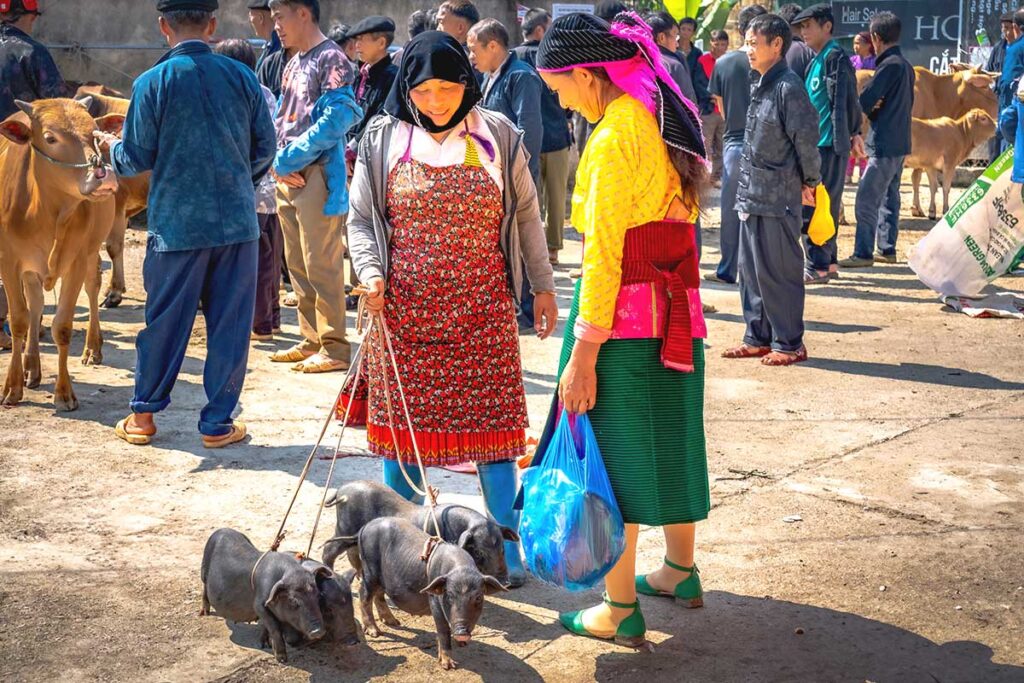
Just outside the main market area is where animals are bought and sold — buffalo, pigs, ducks, chickens, and sometimes dogs or goats. It’s noisy, messy, and fascinating to watch.
Many sellers come just to show off their animals or chat, not necessarily to make a sale. This part of the market is especially popular with older men and farmers from the surrounding villages.
5. Everyday goods
Scattered among the textiles and produce are stalls selling all kinds of practical items — kitchen tools, phone chargers, batteries, SIM cards, toys, boots, and farming equipment. It’s not curated, just useful stuff that people in the area actually need.
Even if you’re not buying anything, it’s fun to wander through and see what’s being sold — and how people shop in this part of Vietnam.
Practical tips for visiting
Dong Van Market is easy to enjoy with a little preparation. These quick tips will help you make the most of your visit — whether you’re here for the culture, the food, or just the atmosphere.
Stay in Dong Van the night before
The market starts early, so it’s best to stay in Dong Van on Saturday night. That way you can walk to the market at dawn and catch the busiest hours before things wind down.
Be respectful
Many people wear beautiful traditional clothing, but this isn’t a show. Always ask before taking photos of individuals, especially older people or children. A smile and simple gesture go a long way.
Bring small cash
There are no card payments here. Bring small denominations of Vietnamese dong for food, drinks, or if you want to buy something. While this isn’t a tourist market, some locally made items (like clothing or dried herbs) make great souvenirs.
Watch your step
The market can get muddy and crowded, especially after rain. Wear shoes with grip, and be ready for a bit of chaos — that’s part of the charm.
Meo Vac Market is another option
If you can’t be in Dong Van on a Sunday, consider visiting the Meo Vac Market instead — just 22 km away. It’s the largest market in Ha Giang, also held on Sundays. While it’s possible to visit both in one morning, most people pick one based on where they are on the Ha Giang Loop.
Other sights in Dong Van
If you stay overnight, don’t miss the Dong Van Old Quarter on Saturday evening. The town comes alive with locals, and there’s often a festive vibe with campfires, music, or dancing in the square. For more things to see nearby, check out our full Dong Van travel guide.
